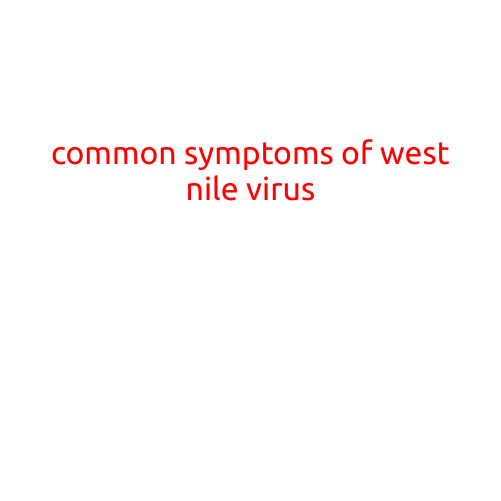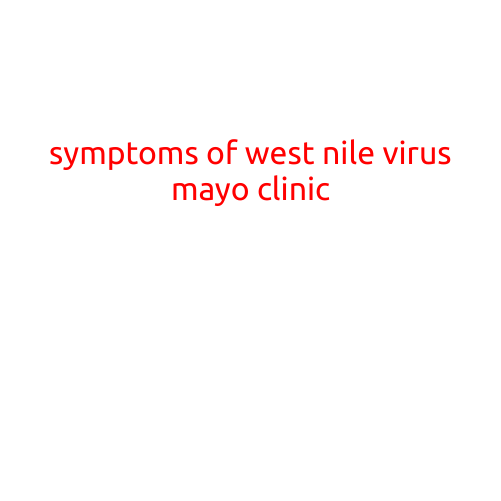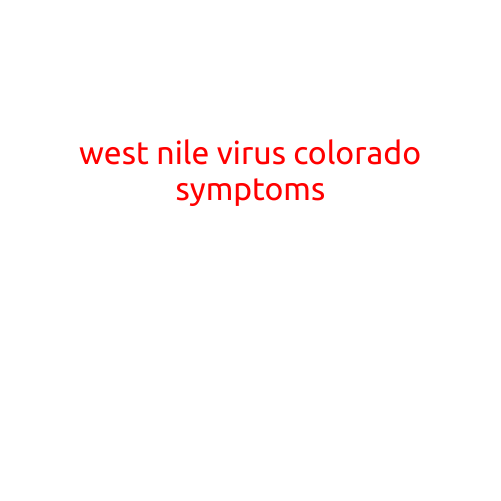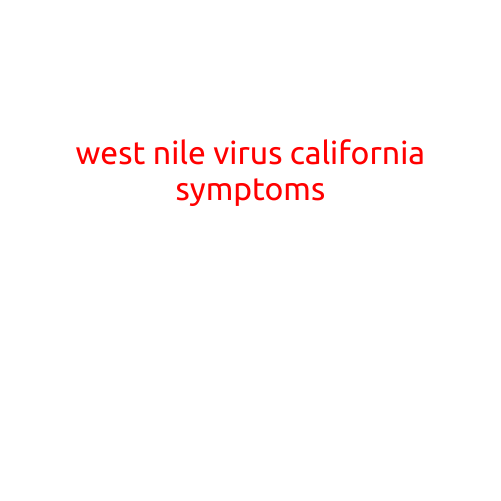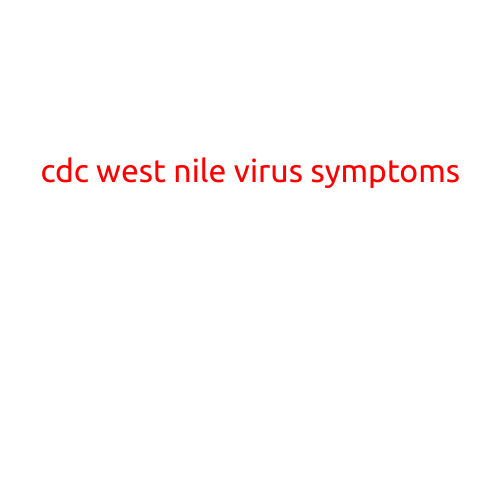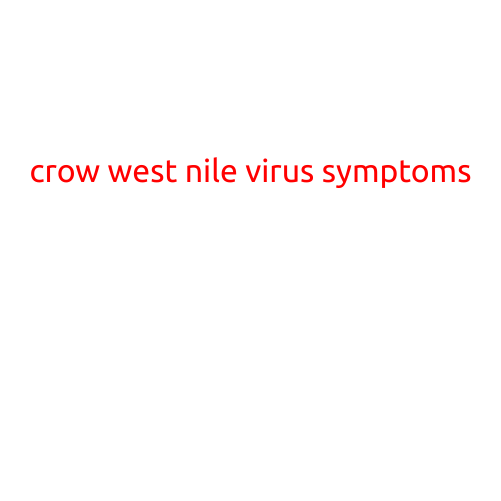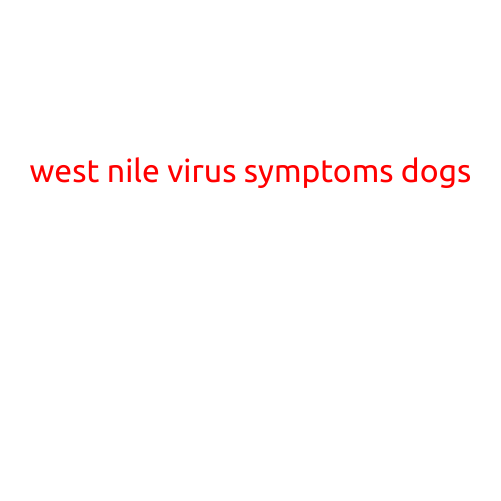
West Nile Virus Symptoms in Dogs
West Nile virus (WNV) is a mosquito-borne disease that affects dogs, horses, and humans. While WNV is rarely fatal in dogs, it can cause a range of symptoms and serious health issues if left untreated. Here’s what you need to know about West Nile virus symptoms in dogs and how to protect your furry friend.
What is West Nile Virus?
West Nile virus is a flavivirus, a type of virus that is transmitted to animals through the bite of an infected mosquito. Mosquitoes become infected with WNV by feeding on infected birds, horses, or other animals. Dogs can contract WNV when they are bitten by an infected mosquito, typically between April and October, when mosquitoes are most active.
Symptoms of West Nile Virus in Dogs
Dogs infected with WNV may exhibit a range of symptoms, from mild to severe. The most common symptoms include:
- Lethargy: Dogs may become lethargic, losing interest in their surroundings, food, and play.
- Drop in Appetite: Infected dogs may stop eating or show a significant decrease in appetite.
- Fever: Dogs may develop a fever, which can range from mild to severe.
- Seizures: In severe cases, WNV can cause seizures in dogs.
- Weakness: Infected dogs may show signs of weakness or paralysis in their legs.
- Incoordination: Dogs may exhibit stumbling, staggering, or difficulty walking due to WNV-induced neuroinflammation.
- Encephalitis: In rare cases, WNV can cause inflammation of the brain (encephalitis) in dogs, leading to significant neurological symptoms.
Diagnosis and Treatment
Diagnosing WNV in dogs can be challenging, as the symptoms are similar to those caused by other diseases. Veterinarians rely on a combination of physical examination, laboratory tests, and diagnostic imaging to diagnose WNV. If your dog is suspected of having WNV, your veterinarian may perform tests such as:
- Blood Tests: Blood tests can detect the presence of WNV antibodies.
- Cerebrospinal Fluid (CSF) Analysis: Analysis of CSF can reveal inflammation and presence of WNV.
- Neuroimaging: Imaging tests like MRI or CT scans can help confirm the presence of neuroinflammation or encephalitis.
While there is no specific treatment for WNV in dogs, veterinarians may administer:
- Antiviral Medications: In some cases, antiviral medications may be prescribed to help manage symptoms and reduce the risk of complications.
- Pain Management: Medications can be used to manage pain, fever, and other symptoms associated with WNV.
- Rest and Supportive Care: Infected dogs may require rest, fluid therapy, and nutritional support to aid in recovery.
Prevention is Key
While it’s essential to recognize the symptoms of WNV in dogs, prevention is the most effective way to protect your furry friend. Here are some tips to help prevent WNV:
- Use Insect Repellent: Apply insect repellent to your dog’s coat, particularly during peak mosquito hours (dawn and dusk).
- Remove breeding sites: Eliminate standing water around your home to reduce mosquito breeding sites.
- Use Mosquito Nets: Cover outdoor areas where your dog spends time using mosquito nets or screens.
- Vaccinate Your Dog: Consider vaccinating your dog against WNV, especially if you live in areas where WNV is common.
- Monitor Your Dog’s Health: Keep an eye on your dog’s behavior, appetite, and overall health, and consult your veterinarian if you notice any unusual symptoms.
While West Nile virus can be a serious health risk for dogs, early detection and treatment can significantly improve recovery outcomes. By understanding the symptoms of WNV in dogs and taking preventive measures, you can help protect your furry friend from this mosquito-borne disease.
